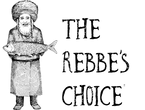While our holy leader Moshe was up on top of Har Sinai getting all the details of the Torah which Hashem Himself was carving into two stones, some impatient Jews at the foot of the mountain decided to make for themselves a god, a golden calf which they would worship.
Moshe did not know what was happening just yet, but certainly Hashem did. The Midrash on this week’s Parsha (Midrash Rabbah Shemos 41:1) shares; “As the Jews were standing below and building the golden calf, God was sitting Above and carving the luchos.” This is strange because, we can rightfully assume Hashem knew the Luchos He was carving would soon be broken, why would He go through all the trouble of carving them out? And, why specifically was God “sitting” and Klal Yisrael “standing”?
The Shem MiShmuel, Rav Shmuel of Sochatchov clarifies these questions. When Hashem was carving the luchos, the Midrash tells us that He was “sitting” and at the same time Klal Yisrael was standing, making the eigel. This is actually a beautiful lesson, for when you want to concentrate, and focus on something you sit. When you move from thing to thing quickly you stand. Therefore, the Jews were standing when they made their idol, because the true essence of a Jew is to do what Hashem wants, not to stray. Therefore, they stood, their actions were temporary, soon enough they would return to Hashem’s ways. We must know there exists within each and every Jew some desire to come close to Hashem. Some of us feel it often and some of us infrequently, yet this is still something, some spark, which dwells within every type of Jew imaginable. A midrash (Bireishis Rabba 65:22) tells us when the Beis Hamikdash was being destroyed the Greeks wanted to make us lose hope in ourselves, in our brothers completely, so, they decided to have the first person plunder from the recently conquered Beis Hamikdash be a Jew. The Greeks recruited a man named Yosef Meshisa, he was fully willing to do this great abomination of God’s possessions. He entered into the Beis Hamikdash and emerged soon after carrying the Holy Menorah of Gold. The Greeks told him to go back and loot some more, but this time he refused, they offered Yosef money, he refused, they threatened him with death and torture, but Holy Yosef refused. The Greeks were infuriated so they began to chop him into pieces, alive. And the entire time he scream, not out of physical pain, but he scream out “How could I have angered Hashem? How could I have done this?!” We can ask the obvious question, where did this Jew find the strength to make such a turnaround in the short span of a few minutes? Moments before, Yosef agreed to steal from the House of God, and now, he was willing to die for God’s honor. This teaches us that no matter how evil a person may be, when they begin some connection to God, and for Yosef that was simply entering into the House of God even as looter, a person’s inner spark can be ignited and the flames can burn so strong with such passion that Yosef the evil sinner can instantly become Yosef the Tzaddik who died to keep God’s name Holy.
On the outside the Jews were sinners, evil. But as we know they stood when they created the eigel for their sin was temporary, a mistake, therefore on the inside they never separated themselves from Hashem. When Moshe broke the Luchos he only broke the stones, the holy Torah written upon it was still etched in time. Meaning, it’s as if the stones themselves were clothing for the letters of the Torah and now we are the clothing for the Torah. God was involved in carving the luchos even at the same moment we were sinning, knowing that they will be shattered, because only the stones were shattered but the soul of the Torah, its spark would live on in each and every Jew. Thus even though on the outside, the external Klal Yisrael was shattered their souls were still pure, that spark was still there. Therefore, we have to live knowing that a spark of the Torah that was shattered smolders within us, waiting to be expressed, waiting for us to kindle our flames.


